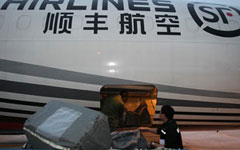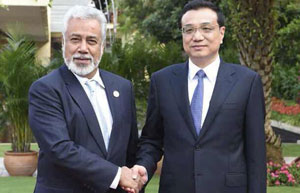Putting logistics at the heart of commerce
By Zhong Nan (China Daily) Updated: 2014-04-09 07:15FedEx has already assisted computer giant Lenovo Group Ltd to boost its global PC sales in Africa, where the PC producer has encountered the same fierce market competition formed by foreign rivals such as Dell Inc and Hewlett-Packard Co as in other parts of the world.
"FedEx has a number of business partners from China that need to load their goods onto cargo flights in its hubs in Shanghai, Beijing, Dubai or Paris to deliver them to different destinations throughout the world," he said.
|
 |
 |
In the meantime, United Parcel Service Inc, the world's largest package delivery company by revenue, is also looking to maintain an upper hand in China's rising delivery market for healthcare products and is planning to add another 14 inner-city express services in the country this year.
It opened a specialist facility in Hangzhou, the capital of Zhejiang province, to handle shipments of medical products last year. The facility consists of 22,000 square meters of storage space and is designed to meet the demands of specific storage of medical devices, biologicals and pharmaceuticals, as well as the distribution needs of different pharmaceutical companies.
Scott Davis, chief executive officer of UPS, said expanding to the healthcare logistics field means the delivery company can now extend its industrial chain from distribution to upgraded warehousing and storage services. It also wishes to have a presence in the bulk freight of healthcare products by offering cheaper solutions for its clients.
UPS opened its first Asia medical products facility in Singapore in 2011, and has followed that with the opening of three additional facilities in Hangzhou, Shanghai and Sydney.
"To capture the growth in consumer demand for healthcare, as well as catching the opportunities from China's e-commerce boom, the online demand for healthcare products will undoubtedly surge over the next five years. We believe that logistics is critical to the success of e-commerce in this market," Davis said.
- Hainan to build world's largest duty-free store
- China, Timor-Leste sign cooperation agreements
- Premier Li meets with Namibia's Prime Minister
- Toyota says to recall 6.58 million vehicles
- Premier Li meets with Timor Leste's Prime Minister
- China encourages development of private healthcare
- Lufthansa Cargo strengthens its presence in China
- FTZ arbitration rules published

















